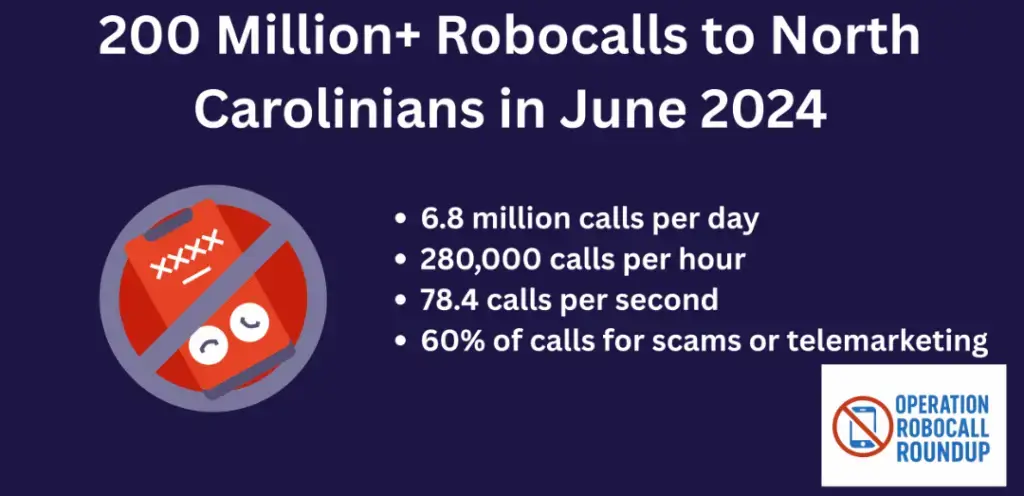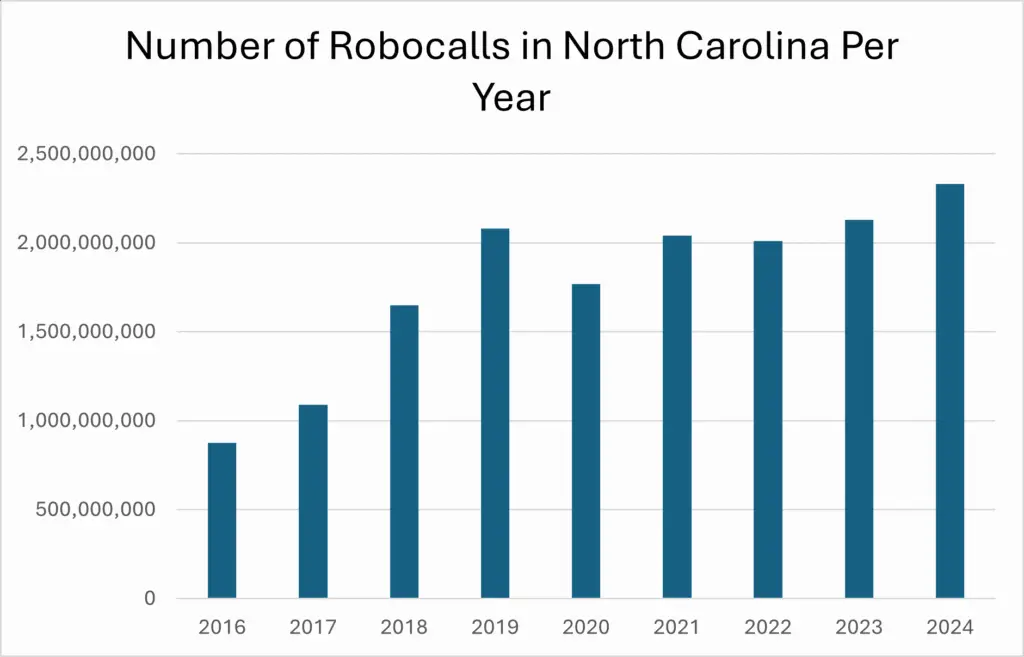State Attorneys General Crack Down on Telecom Robocalls
Robocalls are becoming more of a nuisance and headache to businesses and consumers of late. The more dependent we become on technology and instant communications, the more of an issue robocalling becomes. State attorneys general are intensifying their efforts to combat this problem, leading a coordinated crackdown on telecom companies facilitating these illegal communications. This article delves into the actions taken by the Anti-Robocall Litigation Task Force, shedding light on their legal strategies and the impact on the robocall ecosystem.
Legal Actions by the Anti-Robocall Litigation Task Force
Overview of the Task Force’s Formation
The Anti-Robocall Litigation Task Force emerged in 2022, uniting 51 attorneys general, including North Carolina, in a concerted effort to tackle the escalating issue of illegal robocalls. This unprecedented multistate collaboration marks the first time in history that such a task force has been established, signifying the seriousness with which state AGs view the robocall threat. The task force’s primary goal is to leverage legal action against companies that transmit or enable these unwanted calls.
Key Players: Attorney General Jeff Jackson and His Role
North Carolina Attorney General Jeff Jackson has been instrumental in leading the bipartisan attorneys general of the Anti-Robocall Multistate Litigation Task Force. He spearheaded the initiative to send warning letters to nine voice service providers suspected of violating state and federal laws. Jackson emphasized the task force’s commitment to enforcement, stating that unlawful robocalls are a major inconvenience and a favored tool for scammers seeking to steal money and personal information from North Carolinians. His leadership underscores the seriousness with which these legal actions are being pursued.
Details of the Legal Actions Against 37 Companies
As part of Operation Robocall Roundup, Attorney General Jackson and 50 bipartisan attorneys general have dispatched warning letters to 37 voice service providers believed to be transmitting illegal robocall traffic. These letters demand that the companies immediately cease routing these calls through their telecom networks. Simultaneously, letters were sent to nearly 100 downstream providers that accept call traffic from the suspect companies, alerting them to their potential association with bad actors and urging them to reconsider their business relationships to stop illegal robocalls. These actions are part of the task force’s crackdown.

Analysis of Robocall Statistics in North Carolina
Impact of Over 200 Million Illegal Robocalls
The sheer volume of over 200 million illegal robocalls in North Carolina underscores the scale of the problem. Internal analysis indicates that a significant portion of these robocalls is attributable to specific voice service providers. For example, data shows the impact of one such provider, Lingo, can be seen in the estimated number of robocalls associated with it:
- Approximately 44.5 million Amazon/Apple imposter robocalls nationwide.
- About 148.6 million SSA/IRS government imposter robocalls.
This information is vital for targeted enforcement action. This level of robocall traffic has profound impacts on citizens, leading to financial scams and significant privacy violations.
Public Reaction and Concerns Regarding Robocalls
Public reaction to the incessant flood of robocalls is overwhelmingly negative, marked by widespread frustration and concern. Consumers voice serious worries about scams, privacy breaches, and the potential for financial exploitation. Many individuals find themselves constantly bombarded with unwanted communications, leading to a sense of helplessness and distrust in the telecom industry. Attorney general offices are flooded with complaints, highlighting the urgent need for effective solutions. The anti-robocall multistate litigation task force gains support as people hope they can stop the transmission of illegal calls. This widespread public outcry is a driving force behind the intensified legal action taken by state attorneys general.

Future Trends in Robocall Incidents
Future trends in robocall incidents are expected to be shaped by evolving technology and regulatory measures. While initiatives like STIR/SHAKEN and traceback efforts aim to reduce robocall traffic, scammers are likely to adapt their tactics, potentially using more sophisticated methods to bypass detection. Further, the task force’s plan to traceback notices since 2019 will allow them to follow robocalls to their location. Therefore, ongoing investigation, anti-robocall technology, and robust enforcement will be crucial to counteract these trends. The Anti-Robocall Multistate Litigation Task Force’s work will continue to be vital. Close monitoring of robocall traffic and the implementation of innovative robocall mitigation strategies are essential for staying ahead of the scammers.
Company Responses and Efforts to Combat Robocalls
Carolina Digital Phone’s Initiatives with STIR/SHAKEN
Carolina Digital Phone has been at the forefront of implementing STIR/SHAKEN, which is an authentication framework designed to combat caller ID spoofing, a common tactic used in illegal robocall scams. By validating the authenticity of the calling number, STIR/SHAKEN helps ensure that consumers can trust the caller information displayed on their phones. The company actively participates in industry efforts to refine and expand the use of this technology, aiming to reduce the volume of illegal robocall traffic reaching its customers and protect against scammers. The bipartisan attorneys general hope other companies will follow.
Other Companies’ Strategies Against Robocalls
In addition to STIR/SHAKEN, various telecom companies are deploying a range of strategies to combat robocalls. These include enhanced network monitoring to detect and stop suspicious call patterns, advanced call filtering techniques, and proactive collaboration with law enforcement agencies. Many companies are investing in robocall mitigation technology to identify and block illegal calls before they reach consumers. This proactive approach is essential in protecting consumers from fraudulent communications and maintaining trust in the telecom industry. The Anti-Robocall Multistate Litigation Task Force’s investigations help these companies.
Companies Being Charged in the Crackdown
Several companies have received warning letters for their alleged involvement in facilitating illegal robocalls. State attorneys general have sent letters hoping the companies will stop transmitting illegal calls. These companies face scrutiny for allegedly contributing to the robocall traffic that has plagued consumers across the nation and for potentially violating Federal Communications Commission rules. You can search a list of the companies that received warning letters are listed below:
Company Directory
Conclusion and Future Directions
Long-term Goals of the Task Force
The long-term goals of the Anti-Robocall Litigation Task Force center on dismantling the infrastructure that supports illegal robocalls and holding accountable those responsible for enabling this scam. The task force’s plan includes conducting thorough investigations and pursuing legal action against companies involved in transmitting significant volumes of fraudulent calls. By targeting key players in the robocall ecosystem, the attorney general aims to create a lasting deterrent effect and protect consumers from future harm. The work of the bipartisan attorneys general is vital.
Potential Legislation and Regulatory Changes
Potential legislation and regulatory changes are crucial in bolstering the fight against robocalls. The notified voice providers have not complied with Federal Communications Commission rules, failing to respond to traceback requests or register in robocall mitigation databases, nor have they filed a plan to reduce illegal robocalls on their network. Strengthening these rules and increasing enforcement capabilities can help prevent bad actors from exploiting loopholes. Furthermore, establishing stricter telecom regulations can enhance consumer protection and facilitate more effective robocall mitigation efforts. The task force’s investigations help create better data to make laws.
How Consumers Can Protect Themselves from Robocalls
Consumers can take several proactive steps to protect themselves from robocalls. One effective measure is to avoid answering calls from unknown numbers. Consumers should also be cautious about providing personal information over the phone, especially if the caller is unsolicited.
Staying informed about the latest scam tactics and reporting suspicious calls to the Federal Trade Commission can further safeguard against robocall-related fraud. With this information, consumers can stop robocalls across the nation.
For more information on how to block robocalls or improve your business’s telephone service, contact Carolina Digital Phone at (336) 544-4000.





